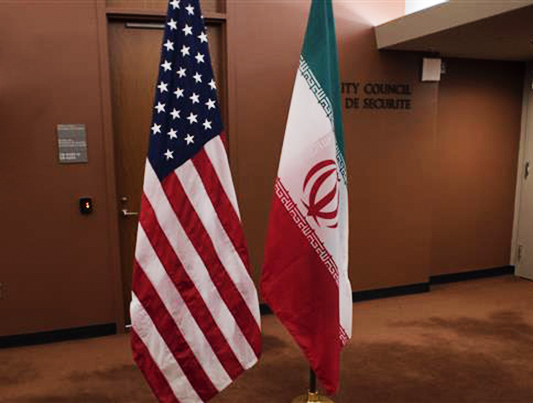Latest reports reveal that the US Department of the Treasury has permitted the Americans residing in Iran to, in case needed, open accounts with Iranian banks, a move which could be indicative of the new US government’s willingness to fulfill its commitments on the implementation of the nuclear deal, also known as the Joint Comprehensive Plan of Action, signed between Iran and the P5+1.
According to a Farsi report by Donya-ye Eqtesad newspaper, this comes as, prior to the US Treasury’s recent interpretation of the sanction laws, the White House’s laws concerning the possibility of the US citizens opening bank accounts in Iran had been shelved.
Investigations show that the interpretation has been published on an American website affiliated to the country’s sanction experts who are responsible for interpreting the US sanction laws. The website resolves its visitors’ ambiguities about the US [sanctions] laws and regulations based on the country’s legal texts.
Earlier, the Central Bank of Iran (CBI) had also issued a directive authorising the Iranian banks to open rial accounts for foreign individuals and institutions. The directive also set the framework for opening time deposit accounts at Iranian banks by natural and legal persons.
The permit issued by the US Treasury based on its interpretation of the nuclear deal and sanction laws is the executive department’s first pragmatic decision since Donald Trump has come into power as the US president.
Apparently, the move is Trump’s first signal indicating his willingness to create a win-win situation by implementing the JCPOA.
Earlier, Hamid Qanbari, the deputy governor of CBI for supply of foreign currencies, told an expert seminar in Tehran that the US Treasury’s Office of Foreign Assets Control (OFAC) has recently clarified that Americans residing in Iran can have bank accounts in the country.
He added the interpretation was issued to enable the US nationals, who live in Iran and need to open bank accounts, make deposits at Iranian banks.
The new interpretation indicates that although those US nationals who are employed in Iran are still violating the US laws, they can reside in the country, if they wish to without being concerned that their moves to meet their basic needs might be perceived as a breach of the sanctions.
Prior to this move, the incumbent US government, who had adopted a hostile approach to the nuclear deal in its pre-election campaign remarks, had not adopted a clear stance towards the JCPOA. However, the recent interpretation of the sanction laws could be a practical example of the behaviour of the Trump administration’s middle managers towards the nuclear deal.
For the past decades, Iran has been subject to a series of primary sanctions imposed by the US that include tough restrictions on banking activities and the Islamic Republic’s access to the dollar.
Those restrictions were intensified as a series of bans were approved against Iran as a result of disputes over the country’s nuclear energy activities. Those bans were lifted in early 2016 after the country reached the nuclear deal with the five permanent members of the Security Council plus Germany. However, US primary sanctions are still in place.
